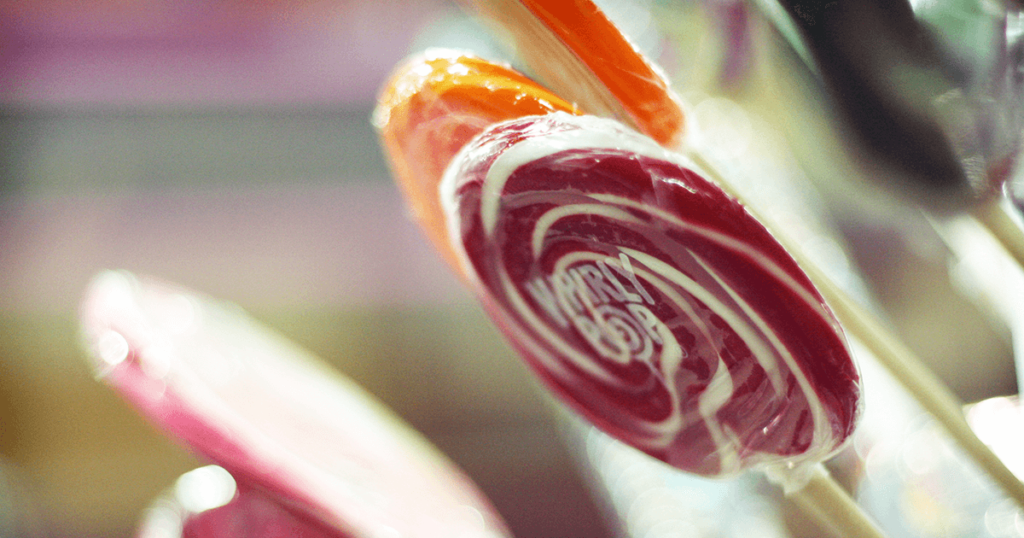
I walked into my neighborhood market holding the hand of a little girl, five years old, sturdy of leg, oval of face, with long ringlets that were sunlit as we stepped through the door that afternoon, years ago. Her hair was a color commonly called castaño, which is the equivalent of brown though it means chestnut, and her skin was what the Spanish usually call morena, tan, but which in English is sometimes called olive, though it is neither like the drab fruit nor the greeny oil, but on her soft and glowing, like the wood, cut and carved and smoothed and polished and warmed into secret life. She was beautiful, but I had forgotten, and was surprised when the checker stared at us. “Is she yours?” the woman asked me, still looking at the little girl but reaching under the counter for a lollipop, which most people think most people have a right to give to any child. Nobody asks. Everyone looks on approvingly.
It was four o’clock, a slow time. We paused there near the register. I looked at the girl, who looked back at me as if she also wondered. “Half,” I said, after a moment, not meaning only at times, nor half mine and half her father’s, but half mine and half her mother’s, though I did not know the mother. Sharing family and sharing responsibility didn’t seem impossible or even tricky to me, who had a half brother and two stepbrothers, a stepmother and a stepfather. But if you’re sharing, it’s good to know where the divisions are, to keep things clear. “Good fences make good neighbors,” is said in Spanish too, in different words. Half seemed a good answer.
Half brother and half sister are English terms that surprise my students. They laugh at the absurdity of half a brother, and yet such a term exists in the Spanish dictionary, medio hermano. No one says it. Instead hermanastro is employed for both kinds of brother, half and step. This kind of inexactitude is not sloppiness so much as inclusiveness, and you see it too in how primo, cousin, is used to mean first or second cousin.
Rather than half, I might have answered ojalá instead, which is a fun word and means I wish. Perhaps, though, casi—“almost”—would have been a more fitting reply, suggesting something evolving about our relationship. I wonder I didn’t think of it.
That little girl is 19 now. I ask about her when I talk to her father from time to time. Perhaps, all those years ago, had I thought less about how much of this girl belonged to me, and answered simply, “Yes,” she would be mine still.

